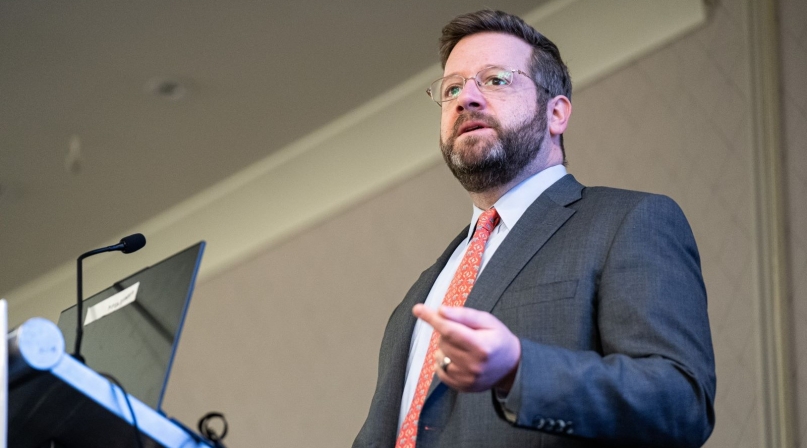Broadband administrator to counties: ‘I need you to lead on this issue’

Key Takeaways
Evan Feinman has a message to county officials across the country who want to get every local business and house in their communities back home connected to broadband: “I need you to lead on this issue,” he told members of the Telecommunications & Technology Policy Steering Committee meeting Saturday morning.
Saturday was the kick-off for the 2024 NACo Legislative Conference in Washington, D.C., continuing through Tuesday.
Feinman is leading the charge to connect all urban, suburban and rural homes and businesses across the country as deputy associate administrator for the $42.5 billion Broadband, Equity and Deployment (BEAD) program at the Department of Commerce’ National Telecommunications and Information Administration. The BEAD program was part of President Biden’s Bipartisan Infrastructure Law, the largest federal investment in public transportation in the nation’s history.
The first step for county officials, he said, is to log onto internetforall.gov. From there, find your state broadband office.
The NTIA received, by the Dec. 27 deadline, all 56 states and territories proposals for implementing the program. See how your state is progressing through the approval process here.
Once states’ plans are approved, they will begin the process of running what’s called “the challenge program,” looking at double-checking locations that the Federal Communications Commission (FCC) says are already connected. That process is happening mainly within the next six months, Feinman said. (You can track your state’s challenge progress here.)
“It’s hard to give you advice about engaging with your state challenge process,” Feinman warned, “because each state is different.”
But “you have to be engaged with your state office,” he advised. “Some states have non-profit entities that are collecting that information. In other states, local governments will have to aggregate citizens’ challenges.”
To put it simply, he said, “where no other outlet exists, you’re it.”
“What’s really important to this is getting the challenge right,” he noted. “If we do not get a person showing as ‘unserved,’ their home is not eligible after the challenge concludes.”
If a county is involved in collecting information for the challenge program, Feinman suggests reaching out to residents any way possible — through local media, newsletters, public bulletin boards or the school system, to find out who is and is not connected. “The school system is going to know who in their classes cannot get on the Internet.”
Feinman drove home the importance of getting it right. “Congress is not going to give us another $42 billion. This is the only train to get on.”
In addition to engaging with the state broadband office and assessing community broadband needs, counties can also:
- Advocate for a community’s vulnerable communities
- Apply to be a subgrantee
- Develop data and engage in strategic planning
- Visit this NACo County Explorer map for information about broadband in your county.
- Visit the NACo Bead Program Toolkit for Counties
For questions about the challenge process, write to: BEAD@ntia.gov.
Related News
County News
Broadband serves as a rural lifeline and building block




